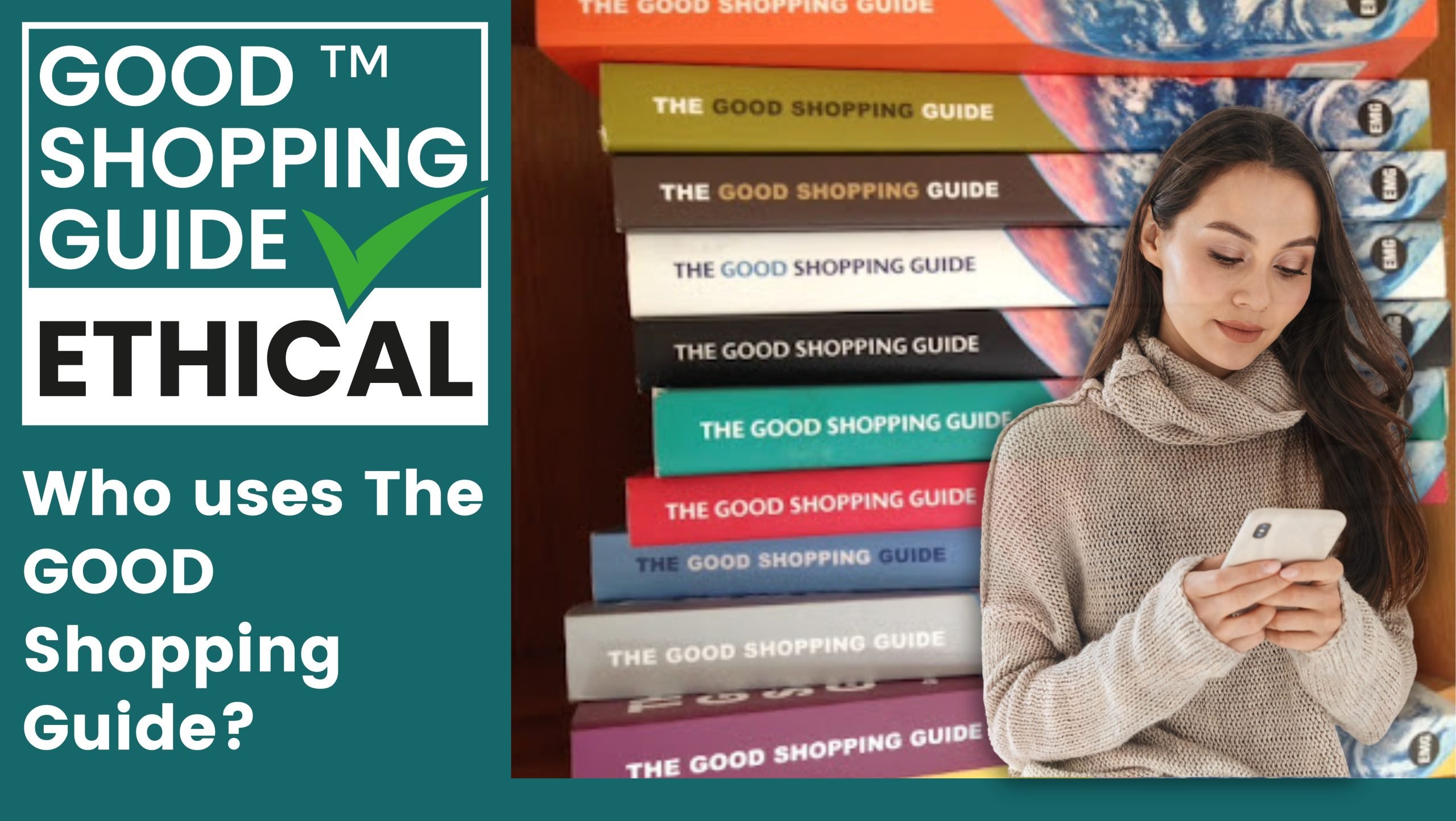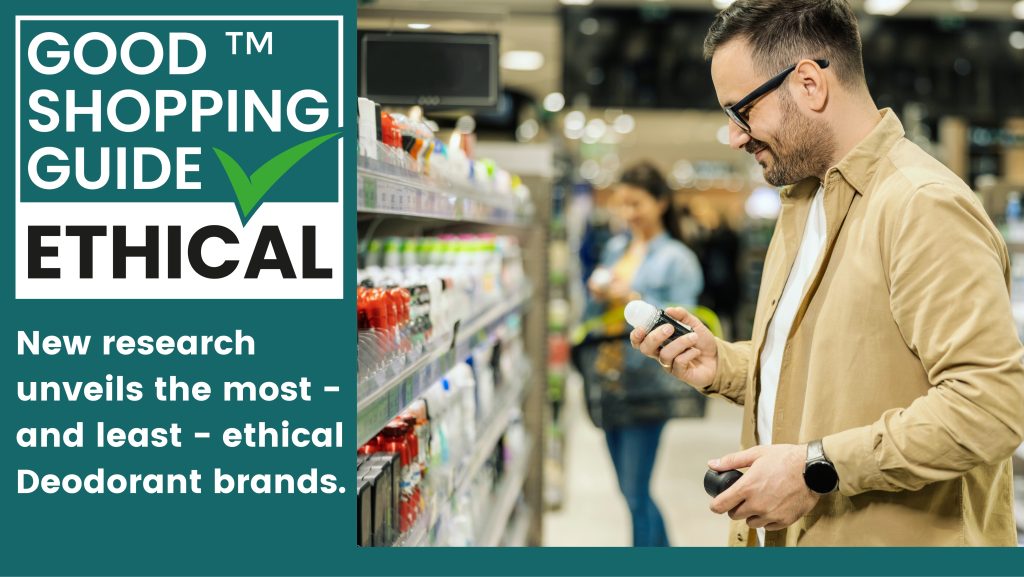Who is The GOOD Shopping Guide Reader?

At The GOOD Shopping Guide, we know ethical consumers have more influence than ever before. Every purchase is a vote, supporting brands that align with their values and avoiding those that don’t.
Evolution of The GOOD Shopping Guide
What many don’t know is that The GOOD Shopping Guide began life as a £14.95 reference book, published annually and sold in mainstream bookshops. It was supported by organisations like Oxfam and Friends of the Earth, and became a trusted guide for ethical shoppers across the UK.
Today, The GOOD Shopping Guide has evolved into a global platform, reaching readers through this free-to-access website, product packaging, advertisements and AI search results. One of our proudest achievements is that we still give our research away for free, empowering eco-conscious consumers with clear, independent guidance. We estimate that our Ethical Accreditation mark has been seen between 5 – 8 billion times worldwide.
Opinion-forming Consumers
Our readers are not passive shoppers. They’re opinion-forming consumers who care deeply about sustainability, ethical sourcing, animal welfare and corporate accountability. Some are driven by environmental concerns, others by social justice or animal rights. What unites them is a demand for real action, not just marketing spin. From eco-minded students and animal rights advocates to ethical families and climate-conscious professionals, our readers turn to The GOOD Shopping Guide to cut through greenwash and find the truth.
A key symbol for our readers is the Ethical Accreditation mark, a visible sign that a brand has been independently verified to meet high ethical standards for people, the planet, and animals. In a marketplace full of empty “green” claims, our mark stands for integrity and trust.
Ethical Comparison Tables
Our Ethical Comparison Tables make this easy, clearly showing how brands score on issues such as carbon emissions, ingredients sourcing, workers’ rights, and political transparency. Whether switching to green energy, choosing cruelty-free makeup, or selecting a responsible bank, our readers rely on our research to make smarter, more ethical choices.
And their choices matter. When thousands of people shift their spending away from unethical brands and toward better ones, the market changes. Ethical brands grow. Others are pushed to improve.
Share
Related articles

How do Consumers find Brands that are GOOD for the Planet?
Independent research helps consumers identify ethical brands they can trust without guesswork or greenwashing concerns.

Which is the Most Ethical & Sustainable Deodorant Brand?
Explore how 28 leading deodorant brands perform on ethics and sustainability, from packaging impact to refillable innovations.

A Bite of Kindness: The Biskery achieves Ethical Accreditation
Discover how The Biskery sets new ethical standards in sustainable, personalised biscuit gifting.